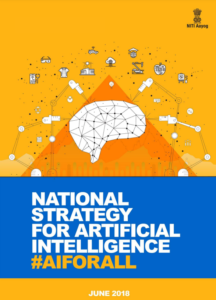In today’s rapidly evolving technological landscape, AI (Artificial Intelligence) has become ubiquitous, influencing almost every aspect of our lives. From the way we shop online to how we receive medical treatment, AI is reshaping industries and transforming the way we work and live. In this context, AI literacy has emerged as an essential skill set for individuals and organizations alike. Let’s delve into why AI literacy is crucial and the benefits it brings.
Understanding AI’s Impact
First and foremost, AI literacy allows individuals to comprehend the profound impact that artificial intelligence is having on society. By understanding the basics of how AI works, people can better appreciate its capabilities and limitations. This understanding is essential for making informed decisions about the adoption of AI technologies and for participating in discussions about their ethical implications.
Navigating the Digital Age
In an increasingly digital world, AI literacy is akin to being fluent in a new language. It enables individuals to navigate and leverage the vast array of AI-powered tools and services available to them. Whether it’s using virtual assistants, recommendation systems, or automated customer service chatbots, AI literacy empowers individuals to make the most of these technologies in their personal and professional lives.
Driving Innovation
AI literacy is also critical for driving innovation and entrepreneurship. By understanding the principles of AI, individuals can identify opportunities for applying AI technologies to solve real-world problems and create value. Whether it’s developing AI-powered applications, designing smart devices, or optimizing business processes, AI-literate individuals are better positioned to innovate and drive positive change in their industries.
Ethical Considerations
With great power comes great responsibility, and AI is no exception. AI literacy equips individuals with the knowledge and skills to navigate the ethical considerations surrounding the use of AI technologies. From issues of bias and fairness to concerns about privacy and security, AI literacy enables individuals to engage in meaningful discussions and advocate for responsible AI development and deployment.
Fostering Collaboration
AI literacy fosters collaboration across disciplines and industries. As AI becomes increasingly interdisciplinary, individuals with diverse backgrounds and expertise must come together to harness its full potential. Whether it’s data scientists working with domain experts in healthcare, finance, or transportation, AI literacy facilitates collaboration and innovation at the intersection of different fields.
Empowering Decision-Making
Finally, AI literacy empowers individuals to make better decisions in an increasingly complex and data-driven world. By understanding how AI algorithms work and how they can be applied to analyze data and extract insights, individuals can make more informed decisions in their personal and professional lives. Whether it’s in healthcare, finance, education, or any other domain, AI literacy enables individuals to harness the power of data and AI to drive positive outcomes.
Conclusion
In conclusion, AI literacy is no longer a luxury but a necessity in the modern age. As artificial intelligence continues to permeate every aspect of our lives, individuals and organizations must prioritize AI literacy to stay informed, navigate the complexities of the digital age, drive innovation, and make ethical decisions. By investing in AI literacy, we can empower individuals to thrive in the AI-powered world and harness the full potential of artificial intelligence for the benefit of society as a whole.



[…] The Critical Importance of AI Literacy […]